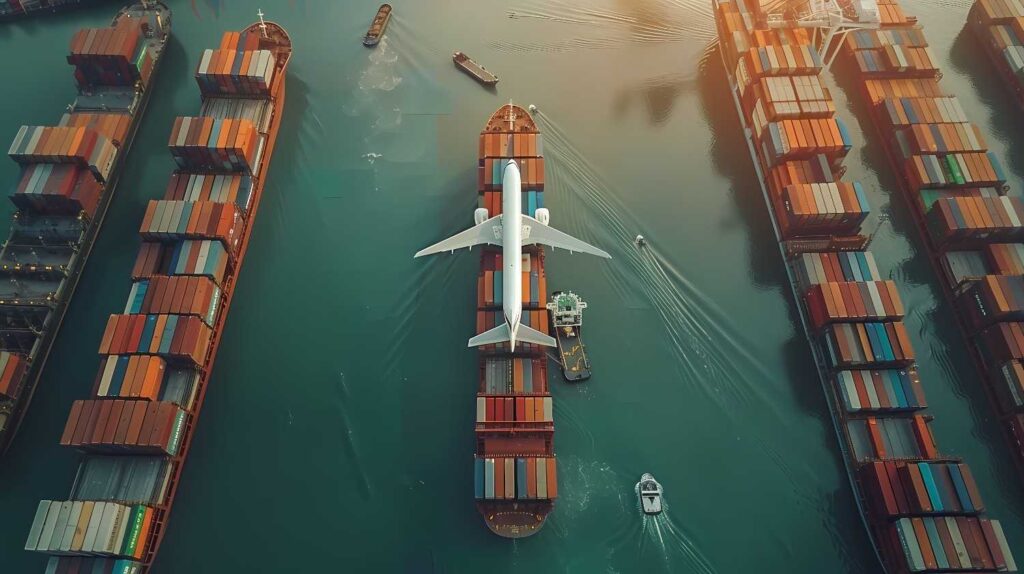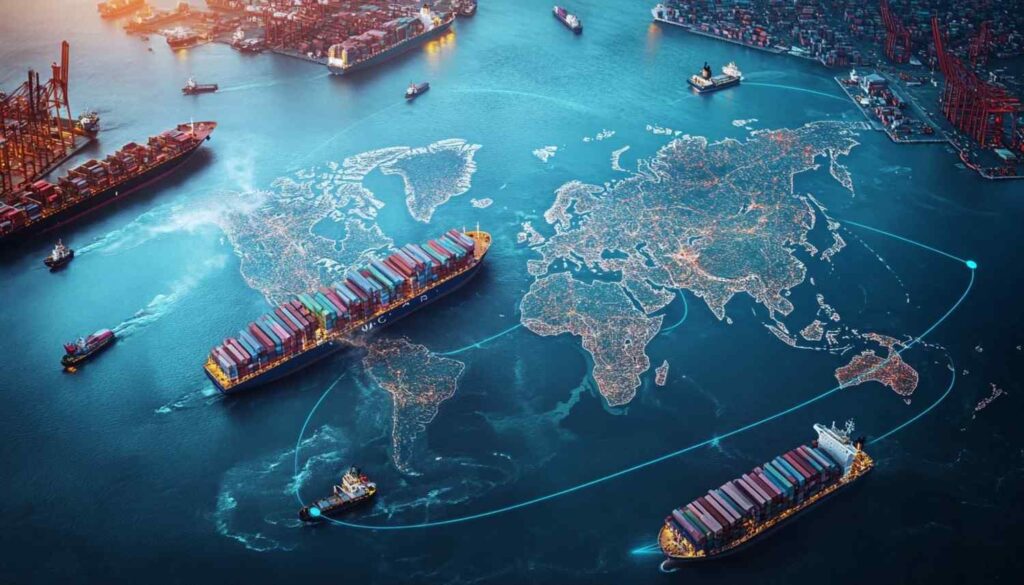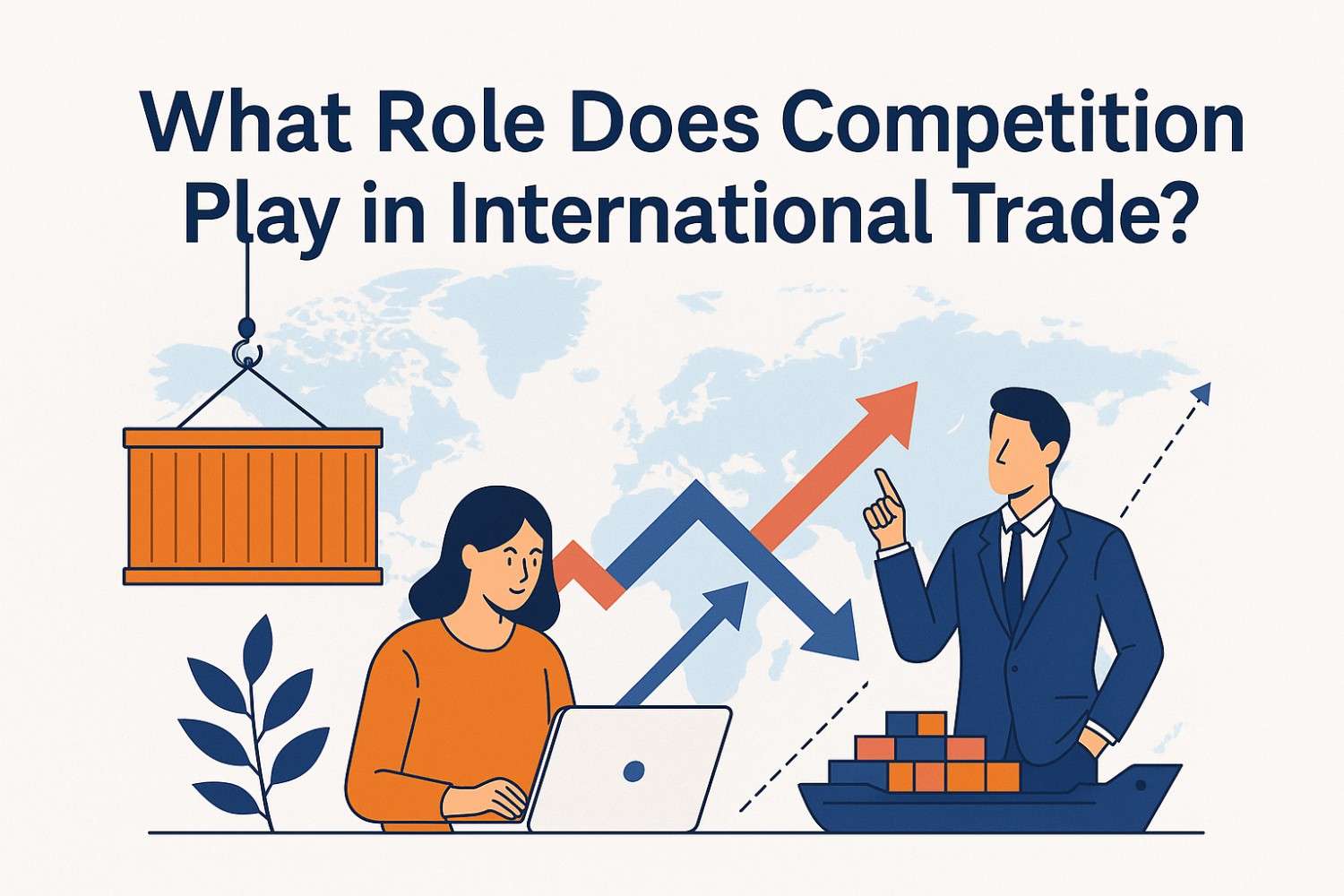Competition serves as the heartbeat of international trade, driving countries and companies alike to innovate, become more efficient, and deliver higher-quality products. When markets open across borders, firms must continuously improve to survive, and consumers reap the rewards through better prices, quality, and choices.
However, understanding what role competition plays in international trade also means recognizing its double edge — while it fuels growth and innovation, it can challenge smaller players and disrupt unprepared industries.
How Competition Shapes Global Trade
Competition in international trade reshapes economies from the inside out. When local firms face global rivals, they must either adapt or exit. According to the International Monetary Fund (IMF), exposure to foreign competition reallocates resources toward the most productive firms and encourages technology adoption. This natural selection process makes economies leaner, more resilient, and better positioned for global success.
Trade competition also widens market access. Domestic firms no longer compete only at home — they must prove their value abroad, where customers demand higher standards and diverse offerings. The result is a more dynamic and interconnected world economy where innovation thrives and inefficiency is punished.
How Competition Benefits Consumers

Lower Prices and Increased Purchasing Power
When foreign goods enter domestic markets, local producers can’t rely on monopolistic pricing. To retain customers, they must reduce costs or improve value, resulting in lower prices. This competition-driven price discipline directly increases consumer purchasing power — one of the most tangible benefits of open trade.
Greater Product Variety
International trade opens the door to a world of options. From imported foods to advanced electronics, consumers gain access to products that might never be produced locally. Global competition ensures that goods are not only affordable but also diverse, satisfying a broader range of tastes and needs.
Better Quality Standards
When firms compete with international players, product quality naturally improves. To stand out in a crowded marketplace, companies invest in superior materials, craftsmanship, and service. Over time, this raises overall quality standards and fosters consumer trust — essential ingredients for sustained trade relationships.
How Competition Strengthens Firms and Economies

Increased Efficiency and Productivity
One of competition’s most powerful effects is efficiency. Businesses streamline operations, optimize logistics, and cut waste to stay ahead of foreign rivals. These improvements boost productivity, which economists identify as a key driver of long-term economic growth.
Innovation and Technological Advancement
Facing global competitors forces firms to evolve. Many invest heavily in research and development, introduce new technologies, or refine existing products. This innovation ripple effect strengthens national competitiveness, spreading knowledge and boosting entire industries.
Specialization and Comparative Advantage
Competition also fuels specialization. The theory of comparative advantage explains that nations prosper by producing what they do best and trading for what others produce more efficiently. For example, a country skilled in semiconductor design may trade with another that excels in agriculture — both gaining efficiency and wealth.
Market Expansion and Economies of Scale
Winning on the international stage gives businesses access to millions of new customers. As firms scale up to serve larger markets, they lower per-unit production costs and enjoy better profitability. Global competition, therefore, doesn’t just test companies — it helps them grow stronger.
The Drawbacks and Risks of Global Competition
While competition in international trade drives progress, it also introduces vulnerabilities that require careful management.

Pressure on Local Industries
Increased import competition can overwhelm less-efficient domestic firms. When foreign rivals offer cheaper or superior alternatives, local producers may shrink, merge, or close, resulting in job losses and regional economic disruption.
Challenges for Small and Medium-Sized Enterprises (SMEs)
Smaller firms often lack the capital, technology, or scale to match multinational corporations. This can widen inequality and limit opportunities for entrepreneurship unless governments provide targeted support and capacity-building programs.
Risk of Anticompetitive Practices
Not all competition is fair. Some countries use subsidies, tariffs, or price-fixing to favor local firms, distorting trade dynamics. Such practices undermine genuine competition and can trigger retaliatory measures that harm global efficiency.
The Role of Governments and Trade Policy
Governments play a critical role in managing how competition unfolds in international trade.
- Balanced protectionism: While limited protection can safeguard strategic sectors, excessive tariffs and quotas often backfire by making domestic firms complacent.
- Competition laws: Strong antitrust regulations prevent monopolies, cartels, and collusion, ensuring that competition remains open and fair.
- Promoting competitiveness: Public investment in education, R&D, and digital infrastructure helps local firms keep pace with international rivals.
- Support for small businesses: Grants, export incentives, and trade training programs enable SMEs to scale and compete globally.
By fostering a healthy competitive ecosystem, governments can maximize trade’s benefits while cushioning the short-term pains of adjustment.

Frequently Asked Questions
1. Why is competition essential in international trade?
Competition is essential because it drives innovation, efficiency, and productivity across industries. By opening markets to foreign rivals, countries encourage firms to improve and consumers to benefit from better prices and more options.
2. How does competition impact consumers in global trade?
Consumers benefit from lower prices, broader product selection, and improved quality. International rivalry forces producers to maintain high standards and continuous innovation to retain their market share.
3. What are the negative effects of competition in international trade?
While generally positive, competition can lead to job losses, business closures, and regional inequality. Smaller firms may struggle to survive against global corporations without government support or innovation incentives.
4. How can governments ensure fair competition in international trade?
Governments can implement fair-trade policies, enforce antitrust laws, discourage unfair subsidies, and support domestic innovation. These measures ensure that competition benefits society as a whole rather than concentrating power among a few global players.
Conclusion: Why Competition Remains the Cornerstone of Global Trade
Ultimately, the role competition plays in international trade is transformative. It sharpens efficiency, drives innovation, and expands prosperity. At the same time, it exposes weaknesses that demand strategic response from firms and policymakers alike. Nations that embrace fair competition, invest in their workforce, and encourage innovation will continue to thrive in a globalized economy — proving that when competition is guided, not feared, it becomes the engine of sustainable growth.










